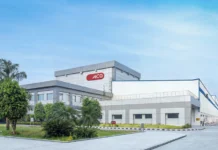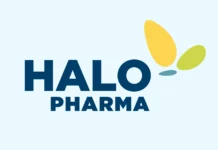Selecting the appropriate contract research and manufacturing option is crucial for biopharmaceutical companies starting new initiatives related to the creation of novel antibodies.
Biopharma companies are seeking reliable CDMO partnerships for specialized capacity and assistance due to the industry’s growing need for competent interdisciplinary professionals. Biopharma companies proceed very cautiously since the process is complicated by a multitude of demands that never go away, regardless of whether they are relationship- or resource-based.
It is important to remember that choosing a CDMO partner requires considering whether they can connect with the project’s distinct spirit. A sound CDMO selection process should have as its trademarks determining the project’s objectives and scope as well as establishing a mutually beneficial collaboration that values technology fit and use.
Choosing wisely
Selecting a CDMO that specializes in biopharma and advanced antibody development is essential for guaranteeing effective GMP production in a fast-paced setting. The ideal partner will be able to identify and transfer certain early development successes into commercial production, as well as possess a thorough grasp of the difficulties of antibody structure, manufacturing, and functioning.
Experts in genetic engineering, molecular biology, cell line creation, process engineering, and sophisticated analytics are particularly needed for their team. The team must have a laser-like focus on early manufacturing aspects and possess such a high level of expertise that they maintain all necessary in-process controls and process predictability. This will enable the expertise to be applied efficiently across manufactured batches.
Versatility of antibody format
The truth is that a CDMO’s ability to solve problems and optimize processes can only increase with the uniqueness of their knowledge with antibody forms. In addition to the format itself, one might talk about their experience with and expertise with partnering technology.
Strong manufacturing capabilities
The CDMO that is selected should show a rapid scaling up the road to capacity. The use of single-use technology, the cost of an efficient process based on the specifications of the lot size as well as the use of materials and components, and adherence to appropriate practices that are sustainable are all important factors to take into account.
Transparent and strategic pricing
It is essential for the CDMOs to ensure that their pricing structure is both transparent and competitive. Despite the high expense, meeting the project’s criteria and producing high-quality results is of utmost importance. To ensure a successful project execution, always be aware of the need of considering long-term value rather than merely short-term cost reductions.
Guaranteed excellence and originality
Noteworthy, a top-tier CDMO also has to have a strong quality management system (QMS), proactive adherence to the current GMPs, robust quality control procedures, and a resolute and continuous commitment to continuous improvement. That they are not only meeting industry requirements but also making a difference by developing cutting-edge next-generation technology is noteworthy.
Place and Customs
A successful CDMO collaboration needs synergy, which should be supported by effective communication, a cooperative attitude, and shared ideals. The CDMO partner’s time zone, geography, and cultural fit may all have a significant impact on how smoothly and successfully the partnership proceeds.
Client-focused
One key distinction is a customer-driven strategy. A CDMO has to embody and exhibit this in real life, not only in promotional materials. The CDMO must be pragmatic and understand how to put the interests of the clients first while fostering an open, cooperative, and effective working relationship that ensures the timely delivery of particularly designed solutions that are specifically created to ensure the project’s success.
Conclusion
Selecting the best CDMO partner for antibody development is a complex choice that is also influenced by factors such as a partner’s location, cost, technology, quality processes, and possible level of experience.
By considering these key components, it is possible to ensure that the partner choice aligns with the company’s values, long-term objectives, and quality standards in addition to fulfilling the project’s urgent demands.
This all-encompassing strategy therefore cultivates a fruitful collaboration, which ultimately contributes to the efficient, long-lasting, and prosperous development of antibody therapies as a whole.




















